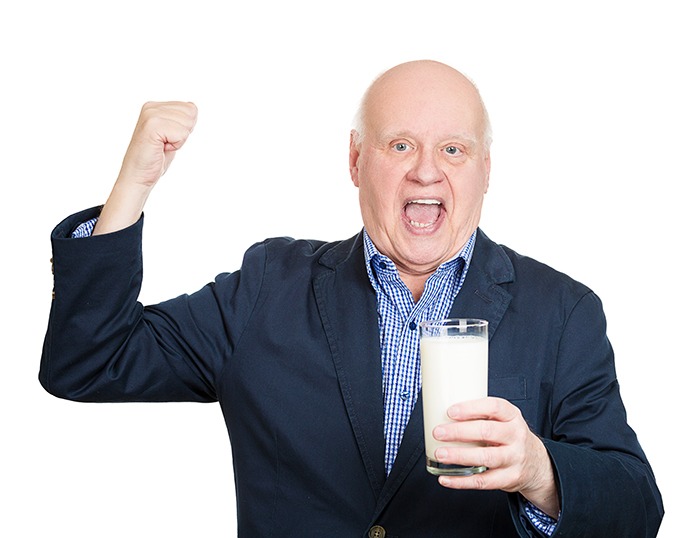
It's never too early (or too late) to take care of your bones. After all, your bones are the supporting structure that allow you to move every day and they protect your vital organs. According to the National Institutes of Health in the US, bones store minerals, namely calcium and phosphorous, for later use, so your body has what it needs.
Your body reaches a maximum amount of bone, or bone mass, by age 30. As you age, you lose bone mass which can weaken your bones and can lead to injury. In fact, 1 in 3 women over the age of 50 will break a bone due to osteoporosis. While the disease is more common in women, 1 in 5 men over age 50 will also break a bone due to osteoporosis. This "silent disease" can be easily overlooked but taking stock of your bone health now along with the right nutrition and exercise could help increase your bone strength and reduce your risk of fracture.
Check out these three tips to keep your bones healthy and strong.
1. Get plenty of vitamin K
Vitamin K is an essential nutrient vital for maintaining and supporting bone health. Several bone proteins rely on this vitamin to regulate bone metabolism, mineralization and formation. Too little vitamin K in the diet may weaken bones increasing the risk for fractures. Much like consuming natural sources of calcium and vitamin D can support bone health, so does eating foods with vitamin K.
A study from Pennsylvania State University found that daily prune consumption preserved bone mineral density (BMD) at the hip and protected against increased fracture risk in postmenopausal women. A hip fracture is a serious injury that commonly leads to hospitalization, diminished quality of life, loss of independence and a shortened life span.
2. Check your calcium and vitamin D intake
Make sure you're getting enough calcium in your diet. Ninety-eight percent of the body's calcium is stored in the bones, making this mineral critical for building and maintaining strong bones. Getting too little calcium can potentially lower your bone mass and make you more susceptible to osteoporosis.
Dairy foods like milk, yogurt and cheese are excellent sources of calcium. For those who don't consume dairy products, there are plenty of other food options including:
* Dark, leafy greens like broccoli and kale
* Soybeans (aka edamame) and pinto beans
* Tofu made with calcium
* Almonds
* Calcium-fortified plant milks and foods
* Calcium-fortified juices and cereals
* Canned salmon and sardines with bones
For your body to properly absorb and use calcium, you'll also need enough of the sunshine vitamin, vitamin D. This vitamin is naturally found in only a few foods like fatty fish, egg yolks and some mushrooms. Milk is fortified with vitamin D as are most plant milks. Your body can also make its own vitamin D by exposing your skin to the sun.
How much calcium and vitamin D you need depends on your age and sex. Before you change your diet, make sure you talk with your doctor or registered dietitian. If your calcium and vitamin D intakes are still low after changing your diet, your doctor or dietitian may recommend taking supplements.
3. Hit the weights
If you avoid the weight rack at the gym, you should reconsider. Weight-bearing and resistance training doesn't just help you build muscle. It can also help build strong bones. Research has shown that resistance training may slow bone loss, rebuild bone and potentially offset age-related bone mass loss.
There are plenty of ways to incorporate strength training into your workout routine. Not ready to start lifting free weights or weight machines? Resistance bands are an easy and approachable way to do strength training. Best of all, you can use them in the comfort of your own home.
Looking for the perfect way to start your day and support your bone health? This purple power smoothie is refreshingly delicious and ideal for your daily routine!